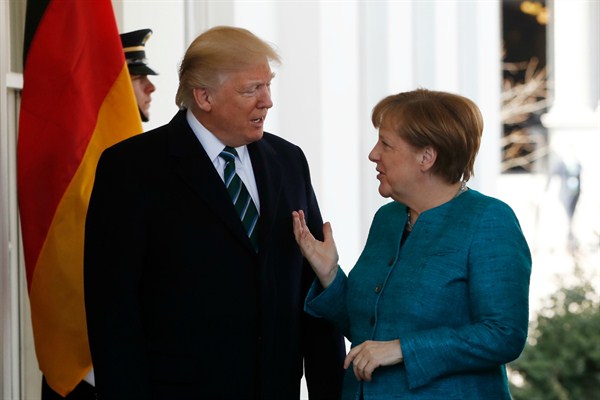It’s no secret that President Donald Trump, like all of his recent predecessors, thinks America’s NATO allies have been free-riding on Washington’s largesse and should contribute more to their own security. In the familiar terms of NATO alliance management, that is understood to mean meeting the target of budgeting 2 percent of GDP for national defense. Set in 2006, that benchmark is currently met by only four other alliance members—one of them being tiny Estonia—with a fifth, France, falling just short.
But last week, at a news conference following his meeting with German Chancellor Angela Merkel, Trump went further than simply calling on alliance members to spend more on defense in the future. Now, it seems, he expects them to make up for having missed past targets as well. “Many nations owe vast sums of money from past years, and it is very unfair to the United States,” Trump declared with Merkel beside him. “These nations must pay what they owe.”
In a recent column, I argued that Trump’s calculus of NATO contributions is misleadingly reductive; others have highlighted the shortcomings of even the 2 percent of GDP target as a useful litmus test. And after Trump’s latest declaration, German Defense Minister Ursula von der Leyen was quick to point out that NATO “does not have a debt account.”

